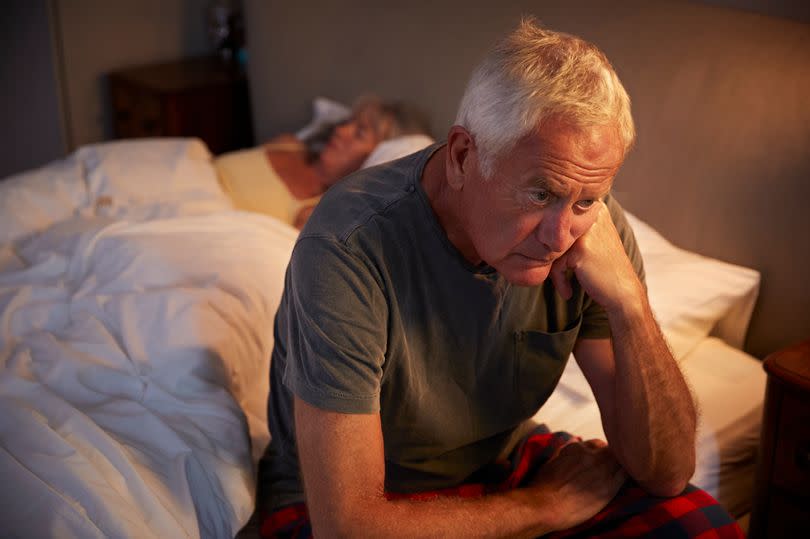Symptoms of undiagnosed sleep disorders which could leave millions of Brits at risk

A new study suggests that millions of people in Britain could be suffering from an undiagnosed sleep disorder that is affecting their daily lives.
According to a new report called The Dreaming of Change report, compiled by The Sleep Charity, nine in 10 adults experience sleep problems and as many as 14m Britons could be living with a disorder they have not sought help for and this could eventually endanger their health. In a poll of 2,000 adults it was discovered that only one in six of those said to suffer symptoms of sleep disorders, such as insomnia and sleep apnoea, had actually been diagnosed, reports The Mirror.
Poor quality sleep is a problem for many so people should be aware of the symptoms of sleep disorders and when to seek help. According to the NHS, insomnia is best categorised as regularly having problems sleeping.
Symptoms of insomnia include finding it hard to go to sleep; waking up several times during the night; lying awake or waking up early and being unable to get back to sleep. However, sufferers may also find the following:
They still feel tired after waking up
Find it hard to nap during the day even though they are tired
Feel tired and irritable during the day
Find it difficult to concentrate during the day because of tiredness
On average, adults need between seven and nine hours of sleep a night but many factors can have an impact upon how much sleep people get - such as stress and anxiety; noisy neighbours and even an uncomfortable bed. The NHS website states that sufferers can try to ease the symptoms of insomnia by making healthy bedtime choices such as relaxing one hour before bed; going to bed at the same time every night and making sure their bedroom room is dark and quiet.
It also suggests avoiding alcohol and caffeine at least six hours before bed; use of a phone or watching TV in bed; having a big meal before bed and napping during the day. However, if changing sleep habits does not improve insomnia, or sleeping trouble has persisted for months, then the NHS recommends seeing a GP.
Doctors rarely prescribe sleeping pills now to treat insomnia but might suggest cognitive behavioural therapy (CBT) or a referral to a sleep clinic.
A more dangerous disorder can be sleep apnoea, which can happen when a person's breathing stops and starts during sleep. The NHS says sleep apnoea needs to be treated because it can lead to more serious problems, such as high blood pressure; heart disease; stroke and depression.
Symptoms of sleep apnoea include:
Breathing stopping and starting
Making gasping, snorting or choking noises
Waking up a lot
Loud snoring
On waking, sufferers may still feel tired; have mood swings or find it hard to concentrate. Sleep apnoea sometimes can be treated by making lifestyle changes such as losing weight and giving up smoking but many people need to use a device called a CPAP machine which gently pumps air into a mask to wear while sleeping.
According to the Sleep Charity report, only one in 20 people polled were aware of the links between poor sleep and serious health problems such as cancer, stroke and infertility. The report called for more public health advice on good sleep habits, as 13% of people had said they have tried drinking alcohol to get to sleep and 5% admitted taking someone else's sleep medication.
Lisa Artis, deputy chief executive of The Sleep Charity, said: "While public health campaigns around healthy eating and physical activity have been ongoing for decades, sleep has been left in the 'solutions box' despite evidence showing poor sleep increases mortality by 13% and is linked with major physical and mental health conditions. We believe it's high time this changed.
"At a time when the government has never been more focused on preventative measures to tackle ill health, our report clearly demonstrates that sleep can play an over-sized role in supporting this ambition and positively impacting all six of the major health conditions in the UK, including cancer, cardiovascular diseases, dementia, and mental ill health."
If you suffer from insomnia, sleep apnoea, or another sleep disorder, The Sleep Charity is here to help. You can call the national sleep helpline on 03303 530 541, or visit the charity's website for information and support.

 Yahoo News
Yahoo News 
